Battling viral conjunctivitis
Ask anyone who has ever battled viral conjunctivitis a.k.a. pink eye – he or she’ll tell you that its absolute torture. After battling the darned infection for 22 long days, I can attest to it being as horrible as people proclaim it to be.
Wrong diagnoses by the doctor, multiple trips to the clinic for more leave days, and many painful, gooey and crusty eyes later, this is my account of the ordeal and why you should think twice about rubbing your eyes if you’ve got the bad habit of doing so.
Whether you’re a strong survivor or a poor soul who’s just contracted the virus, here’s what to expect and some tips on how to alleviate the growing discomfort.
Disclaimer: Every case of conjunctivitis is unique and plays out differently for each individual.
Be warned, gross but heavily filtered images ahead. Some photos are for illustration purposes only.
For more perspective articles, check out:
Catching conjunctivitis: symptoms, types and how it spreads

Even amid a pandemic, the act of rubbing our eyes is second nature to most of us, so much so we only catch ourselves committing the heinous crime of rubbing without disinfecting after the deed is done. In my case, as someone who frequently sported contact lenses, I was fairly accustomed to the occasional red eye. These always subsided within the hour, leaving me with nothing to worry about.
So when my partner developed bloodshot eyes one fine day, we both thought nothing of it and put the blame on his new shampoo thinking it might have irritated his eyes. It wasn’t until his eyes stayed bloodshot for three eyes, and a thick, sticky mucus started being secreted that we knew medical help was due.
Viral conjunctivitis had its first victim. The doctor I’d accompanied him to see told us that it was highly contagious and we were reckless to have only sought medical treatment after so long. Had he held out any longer, my boyfriend would’ve had to be sent straight to A&E.
With absolutely no knowledge about conjunctivitis, we did our research. Here’s conjunctivitis 101:
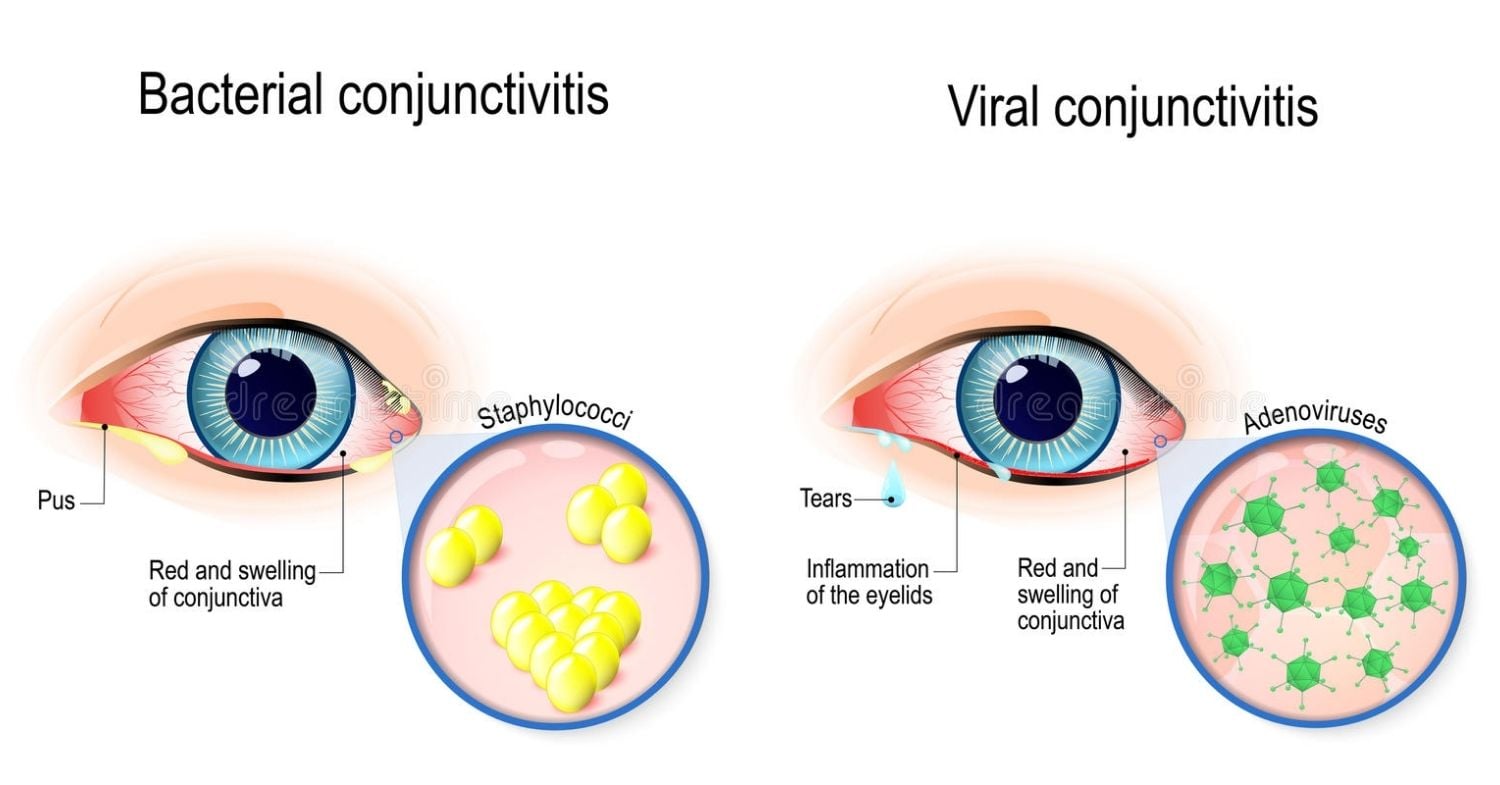 Image credit: Dreamstime (left, right)
Image credit: Dreamstime (left, right)
There are three types of conjunctivitis – allergic, bacterial and viral. The latter two are more common. Viral conjunctivitis is much like a cold and is caused by the adenovirus, and can last for a period of two weeks.
Two most telltale signs that it’s 100% conjunctivitis are:
- An increased amount of discharge that’s usually a thick, sticky mucus
- Feeling a sensation of having “foreign bodies” in your eyes.
If it’s a no for both, you’re safe.
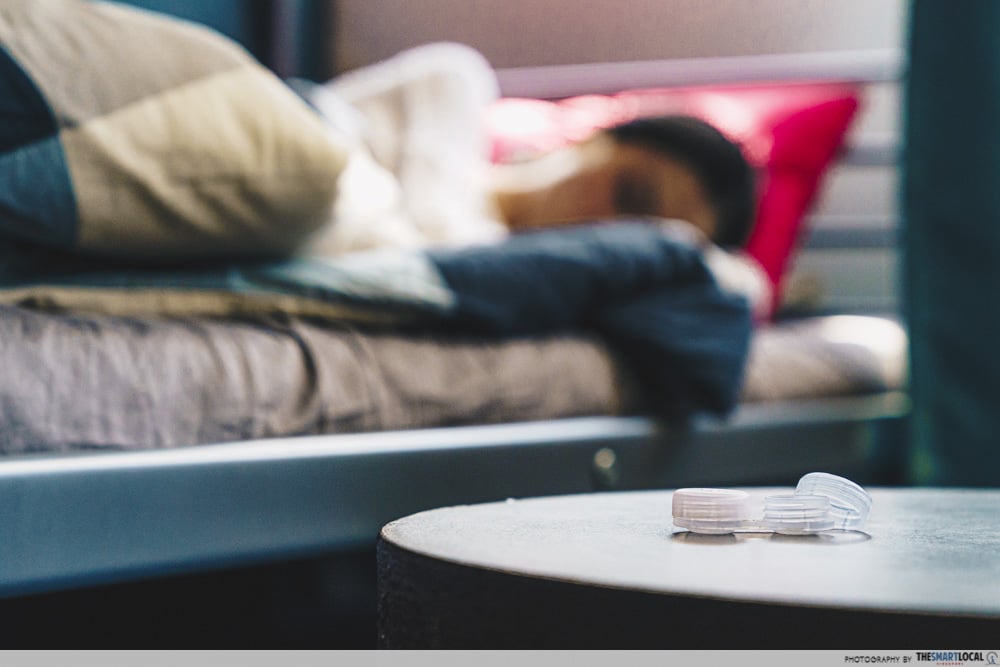
Bacterial conjunctivitis can occur due to bad hygiene when wearing contact lenses
On the other hand, bacterial conjunctivitis is caused by – you guessed it – bacteria. And wearing contact lenses that have not been cleaned properly is one sure way to get it. The discharge from this type is thicker than in the case of viral conjunctivitis, and one typically recovers in a shorter period of time.
The commonality: they’re both contagious.
Contrary to popular belief, conjunctivitis doesn’t spread through eye contact. It spreads when the infected person rubs their eye and touch surfaces with their virus-laden hands. Someone else touches it, rubs their eyes, and boom, they’re down.
With that, I knew I’d been infected. When my eye developed a gritty feeling without even turning red, I tried to “wash it” with eye drops in hopes of clearing it up before things got serious. The swelling started with my right eye, but due to its contagious nature, it’s almost impossible for the other eye to avoid getting infected as well.
What to expect: the different stages of conjunctivitis
Phase 1 – bloodshot eyes, sticky discharge

Image credit: Liang Shi Nan
When I woke up the next day, both my eyes were painful and red, and on top of that, I also contracted a fever. Waking up was the absolute worst. Your eyes are sealed shut with crusted pus so you’ve to feel your way to the toilet like a blind bat. For the first five days, my eyes were bloodshot and were constantly producing a sticky discharge which I had to go through boxes of tissues to clean.
Comfort tip: A hot compress will offer you temporary relief
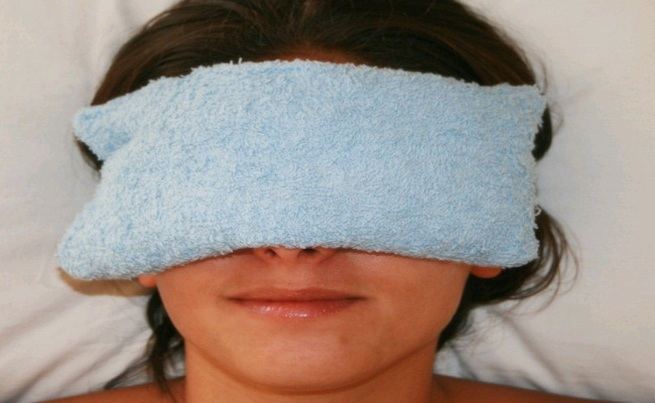
Image credit: Stye Treatment
A hot compress will soothe your puffy, crust-sealed eyes, but only temporarily. When doing the hot compress, you need to be very careful not to cross contaminate between the two eyes. Doctors recommended using separate towels to avoid cross contamination between the two eyes – so if you don’t mind the hassle to clean them afterwards, that’s the safest way.
Bear in mind that this toxic discharge is highly infectious and you wouldn’t want to get it on any surface lest someone you love touches it and kena. Wash your hands thoroughly periodically and clean contact surfaces with antibacterial wipes or spray.
Phase 2 – sensitivity to light
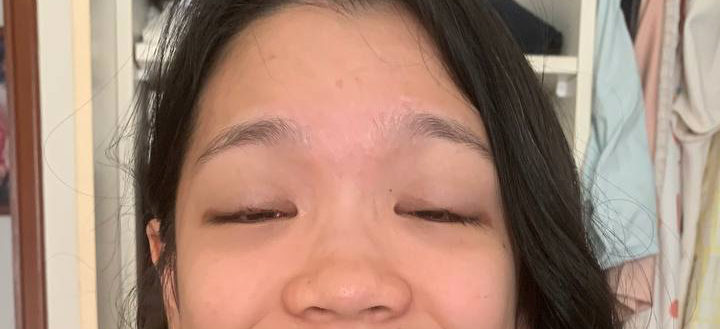
This was me trying my hardest to open my eyes, but I still looked like Brock from Pokemon.
Image credit: Liang Shi Nan
On the sixth day, there was less discharge and I could feel my eyes clearing up. However when that happened, my eyes became hyper sensitive to light. I had to force them open with my fingers, but even then, my eyes would be begging to be closed. Audio entertainment will be your best companion then, because watching Netflix would put great strain on your healing eyes.
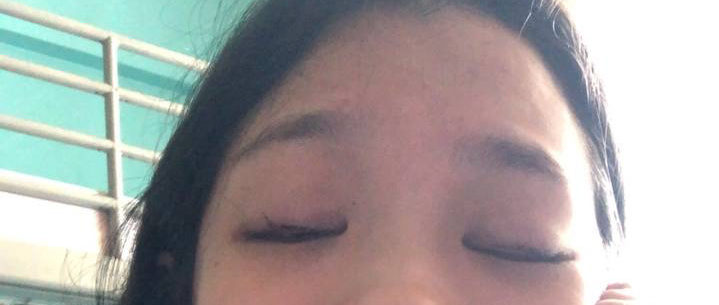
My eyes when relaxed – it couldn’t even close as per normal.
Image credit: Liang Shi Nan
The sensitivity to light lasted for a week. The worst was when I was jolted awake every once in a while because the toxic build up in my eyes made sleeping too uncomfortable. Expect to flush your eyes with a special wash every now and then to clear the acid buildup.
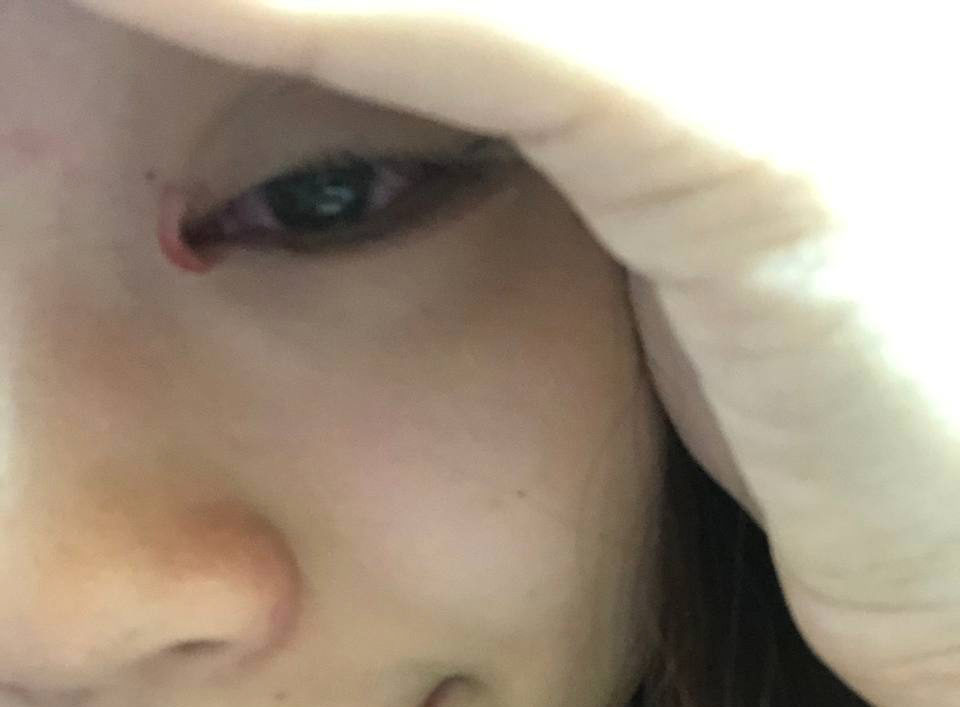
Image credit: Liang Shi Nan
I also noticed blood in my tears at one point, which scared the life out of me. Thankfully, according to Google, it was a case of haemolacria – a rare but benign condition caused by inflammation.
Phase 3: Finally seeing the light of day

Image credit: Liang Shi Nan
12 days after contracting viral conjunctivitis, I finally managed to crack open my eyes to see the light of day. Being forced to have my eyes closed meant a 2-week hiatus from all the things I loved. I couldn’t even pass time with Netflix shows or social media. Even checking Telegram messages and IG DMs became a chore.
Apart from being unable to work, I had to “quarantine” myself from friends and family to keep them safe. So the virus clearing up meant I could finally function like a normal human being and resume my work and social life.
Seeking medical help
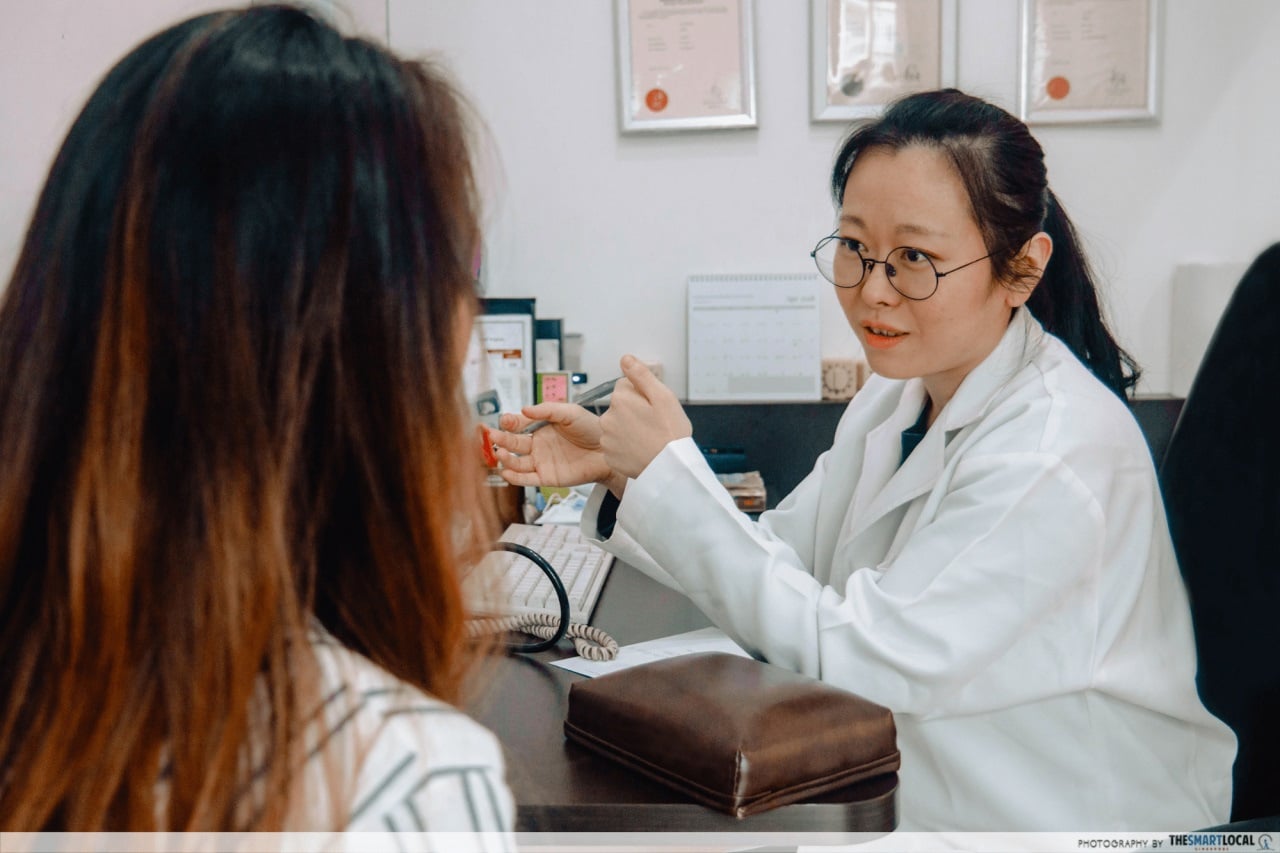
For illustration purposes only
A quick Google search told me viral conjunctivitis takes a whopping 14 days to clear, but none of the doctors I saw warned me of prolonged infection. My first visit to the doctor only resulted in a measly 3-day MC and very little forewarning of the phases and what to expect. This made the whole 22-day long ordeal scarier for me as the hypochondriac in me expected the worst.
If you visit the doctor during the earliest stages of conjunctivitis, you may be advised to come back every three days for a review and in case your condition worsens. Inconvenient? Yes, but a small price to pay for ensuring the health of your eyes. After all, in some rare, serious cases, eye infections can cause irreversible damage.
It’s also possible for your GP to refer you to A&E or an eye specialist should your condition take longer than usual to recover. In more serious cases, minor surgery may be required to alleviate the pressure buildup in your eyes.
Keeping conjunctivitis at bay
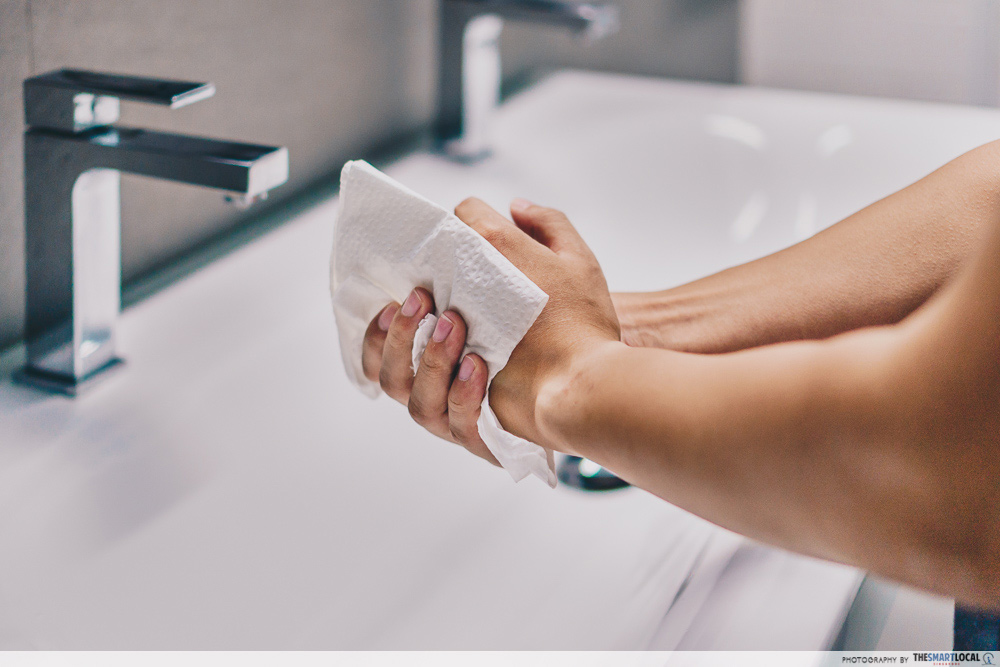
If you have to rub your eyes, wash your hands first!
If you’ve been a victim of conjunctivitis before, you’ll know the guilt that comes with having your family members or friends contracting the infection. I wish I’d washed my hands religiously before this whole stint and implore the rest of you out there to do the same. Dispose of discharge-laden tissues properly and avoid sharing food with others.
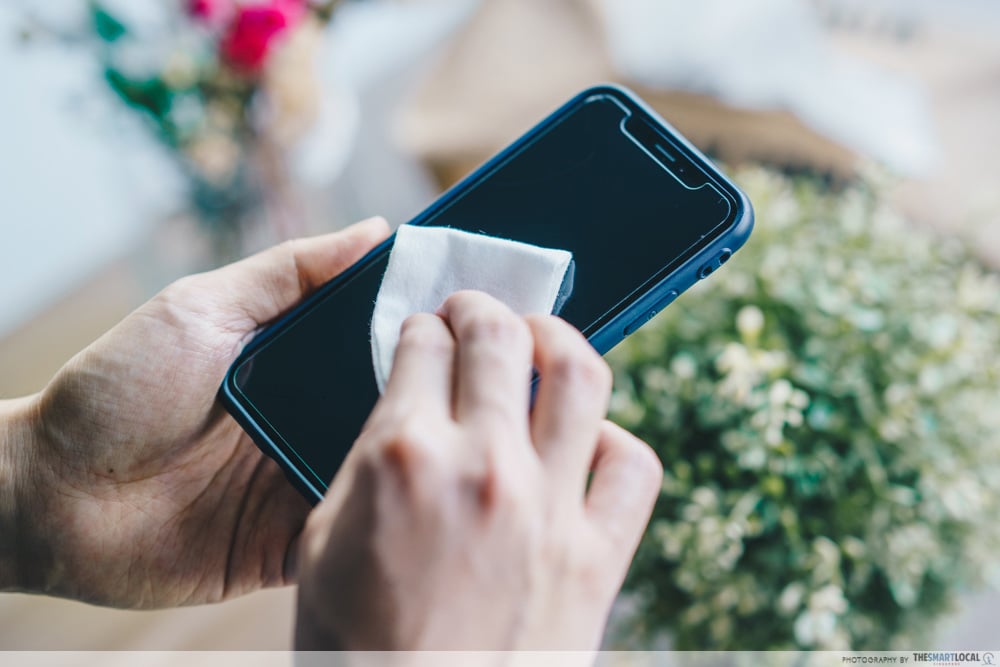
Also remember to sanitise all surfaces you’ve touched with alcohol
Conjunctivitis has shown me just how fast a virus can spread and it’s important to keep our hygiene up, especially in these Covid times.
For more perspectives, check out:
